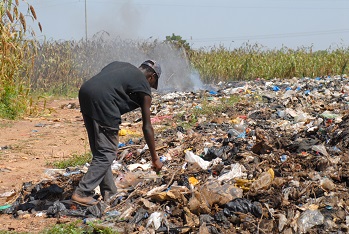EU-Africa synergies for e-waste recycling

Related topics
Environment & climate action Innovation International cooperation Austria Belgium Italy Portugal United Kingdom Environment Cote D'Ivoire Kenya South Africa Zambiadate: 10/08/2015
Project: EWIT: Developing an e-waste implementati...
acronym: EWIT
See also: CORDIS
Involving five EU and four African countries, the EWIT project plans to develop the recycling sector in African towns and cities. This will benefit the economy and help protect the environment, public health and protect current jobs, say the project partners.
The team will start by building a full picture of current e-waste collection systems, best practice and consumer behaviour with a view to maximising waste collection and launching consumer campaigns that highlight the benefits of recycling.
The next step will be to map the technological options for recycling e-waste, bearing in mind current practice and both alternatives and complementary technologies with a potentially lower environmental impact.
Recycling may lead to new opportunities to create value – if raw materials recovered from old appliances can be re-used by downstream industries, this will reduce dependence on primary resources: more good news for the environment.
And if secondary raw materials can also be recovered, particularly those considered as fundamental to economic growth (critical raw materials – CRMs), the opportunities could be even greater. EWIT will investigate how technologies could be used to make certain that waste potentially containing such materials makes it to the right recycling facilities, thus ensuring CRMs can be recovered rather than exported illegally.
Central to the project will be the creation of synergies between African and European municipalities and governments that will facilitate technology transfer and the monitoring of e-waste flows.
